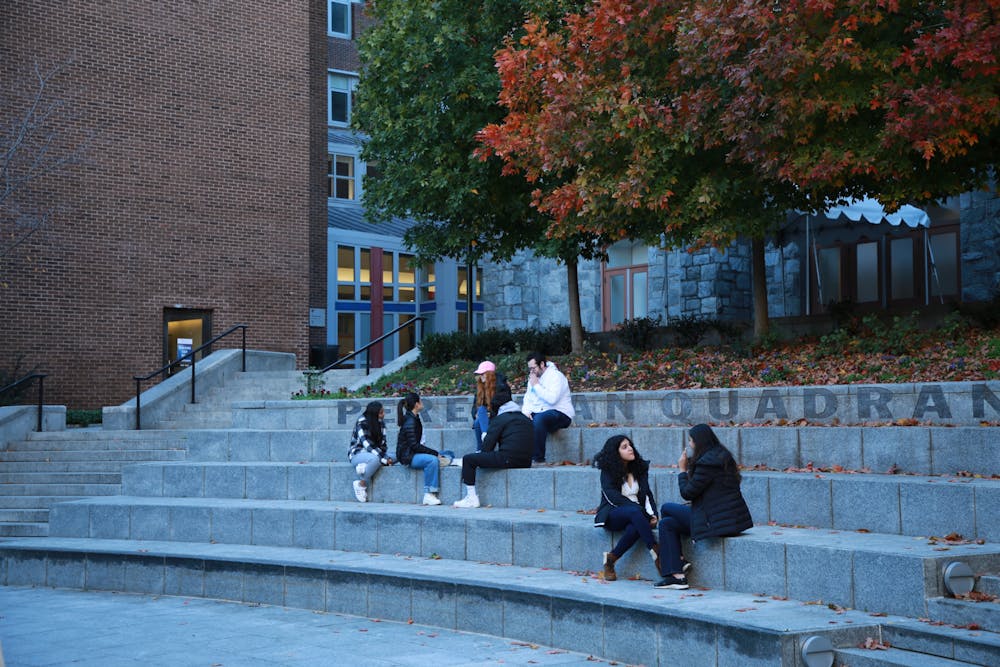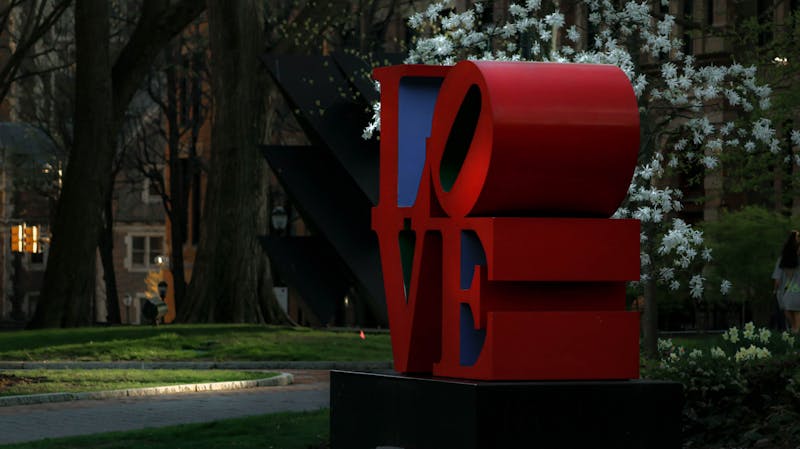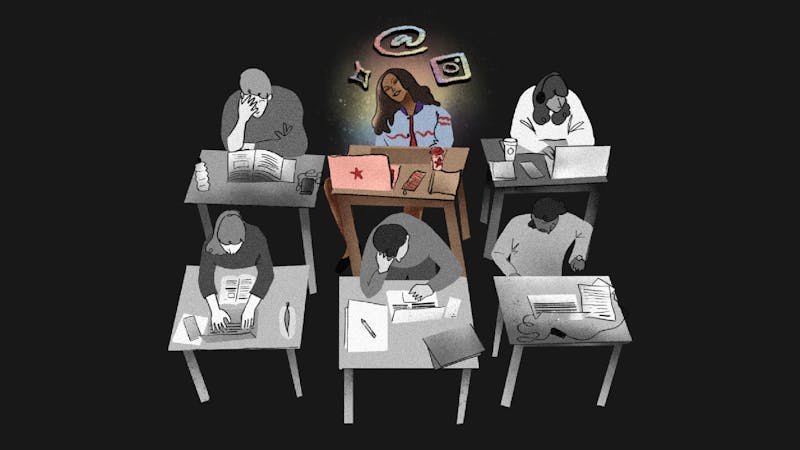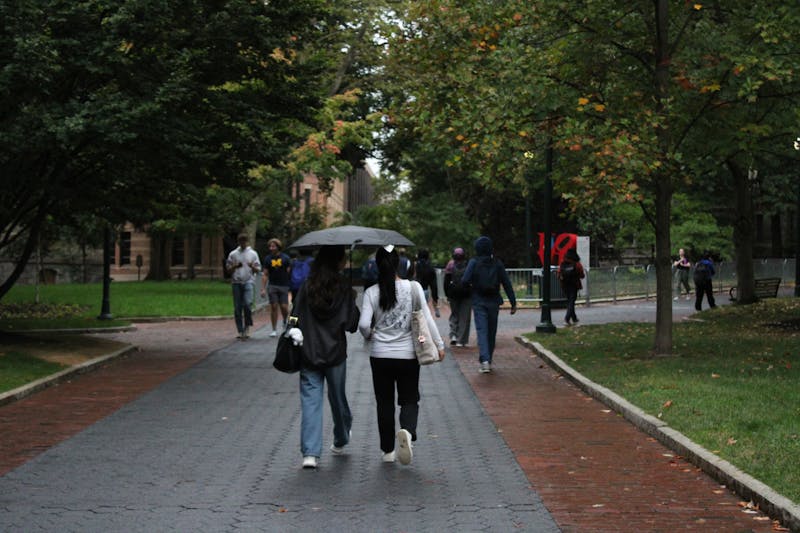
Before coming to Penn, the rumors of an emotionally sterile culture, in which students suffer in silence and suppress vulnerability, hung over my head like a dark cloud. But, I was carrying an umbrella — no rain was getting on this parade. I didn’t believe the talk. It’s common for young students to hide their emotions. What did Penn have to do with anything?
But alas, I was sorely mistaken. Students weren’t just hiding negative emotions; they were wearing a mask of indifference. The term “Penn Face” has long circulated through campus and the mouths of students. Penn Face is unofficially described as “the tendency for Penn students to act as if their lives, both academic and social, are perfect.” While I don’t deny the existence of this facade across campus, it appears students have embraced a new kind of Penn Face — one that doesn’t just project perfection but that lacks emotional expression at all. Penn students are not blind to this behavior either. Many have encapsulated the whole culture in one word, describing themselves as nonchalant. The term “nonchalant” is defined as “calm and casual” and “lacking in enthusiasm or interest.” But, especially at Penn, being nonchalant is a personality trait, strategy, and badge of honor.
Penn students feel they must approach their appearance strategically and be mindful of how much they show. The most recent example of Penn students avoiding vulnerability was the Penn Marriage Pact. The most exciting part of the process was when students were given the initials of their match, but once they received a full name, excitement morphed into disengagement. Students wouldn’t reach out to their match first. To some, even an Instagram follow was a hand too far extended. Friends and classmates admitted they would only reach out if the other person did first.
In Penn’s quite active hookup culture, the same set of rules apply: Never be emotionally open and keep your cards close to your chest. Don’t dare reach out to a person you met over the weekend. Don’t even make eye contact across the Quad. That would demonstrate interest, making you vulnerable — rookie mistake.
But this sense of nonchalance doesn’t just stop at romance. Penn students bond over negativity. They talk openly about bad things that happen to them. But, this doesn’t mean they are sharing how they truly feel. They are avoiding deeper emotional expression that might reveal vulnerability.
“The guy I liked ghosted me” is almost always followed with, “It is what it is.” Students actively diminish their expression in situations where emotion should be evoked. Even with positive emotion, students display a cool attitude.
“I got the internship” is typically followed by, “It’s not a big deal.” Emotion of any kind is stigmatized: It’s a liability to image. Negative emotion reads as instability and weakness, and positive emotion reads as not relatable and even arrogant in Penn’s success-oriented culture.
Such a mindset is not only exhausting but extremely dangerous. When students can’t express their emotions, Penn feels isolating. The college experience is a challenging one without genuine pillars of support. In emotional honesty expert Brené Brown’s TED talk, “The Power of Vulnerability,” she claims that humans are hardwired for connection. She conducted years of research, finding that those happiest, most fulfilled, and “wholehearted” were those who expressed vulnerability. She tells listeners that the only way to build meaningful connection is by expressing authenticity and vulnerability with those around them. She ends her talk with these words: “I’m just so grateful because to feel this vulnerable means I’m alive.”
To be vulnerable is to be human. Encouraging everyone to hide behind a facade of nonchalance by suppressing any emotion — positive, negative, romantic — is unsustainable and detrimental to personal development in college.
My qualms cannot be specifically attributed to Penn but rather larger cultural norms. The label “nonchalant” has become a buzzword on platforms like TikTok, Instagram, and Sidechat. With users glorifying being unbothered and cool, this trend demonstrates a cultural shift towards emotional detachment and curated personas. While Penn students may not be able to affect an entire generation’s attitude, we can affect the culture on our own campus. As 2020 College graduate and former DP opinion columnist Aaron Cooper writes, “University culture isn’t something that a shady council of elders distributes to students in black envelopes.”
University culture is something we as Penn students invent, establish, and reinforce, making it our responsibility to change. We must remove the veil of indifference we display. It’s critical for the wellbeing of all of us. Be “chalant.” Be vulnerable. Cry while walking down Locust Walk. Text your class crush. Reach out to your Penn Marriage Pact match. Tell your friends when you’re struggling. Tear up in office hours when your professor asks how college is going.
We are all young people figuring this — Penn, college, life — out, and the only way we can reduce the loneliness and isolation that our peers feel is by starting with ourselves. Emotions aren’t weaknesses. Reject the pressure to seem unaffected or apathetic by a time of our lives that is incredibly difficult. Be “chalant.”
PIPER SLINKA-PETKA is a College first year studying health and societies from West Virginia. Her email address is pipersp@sas.upenn.edu
The Daily Pennsylvanian is an independent, student-run newspaper. Please consider making a donation to support the coverage that shapes the University. Your generosity ensures a future of strong journalism at Penn.
Donate











